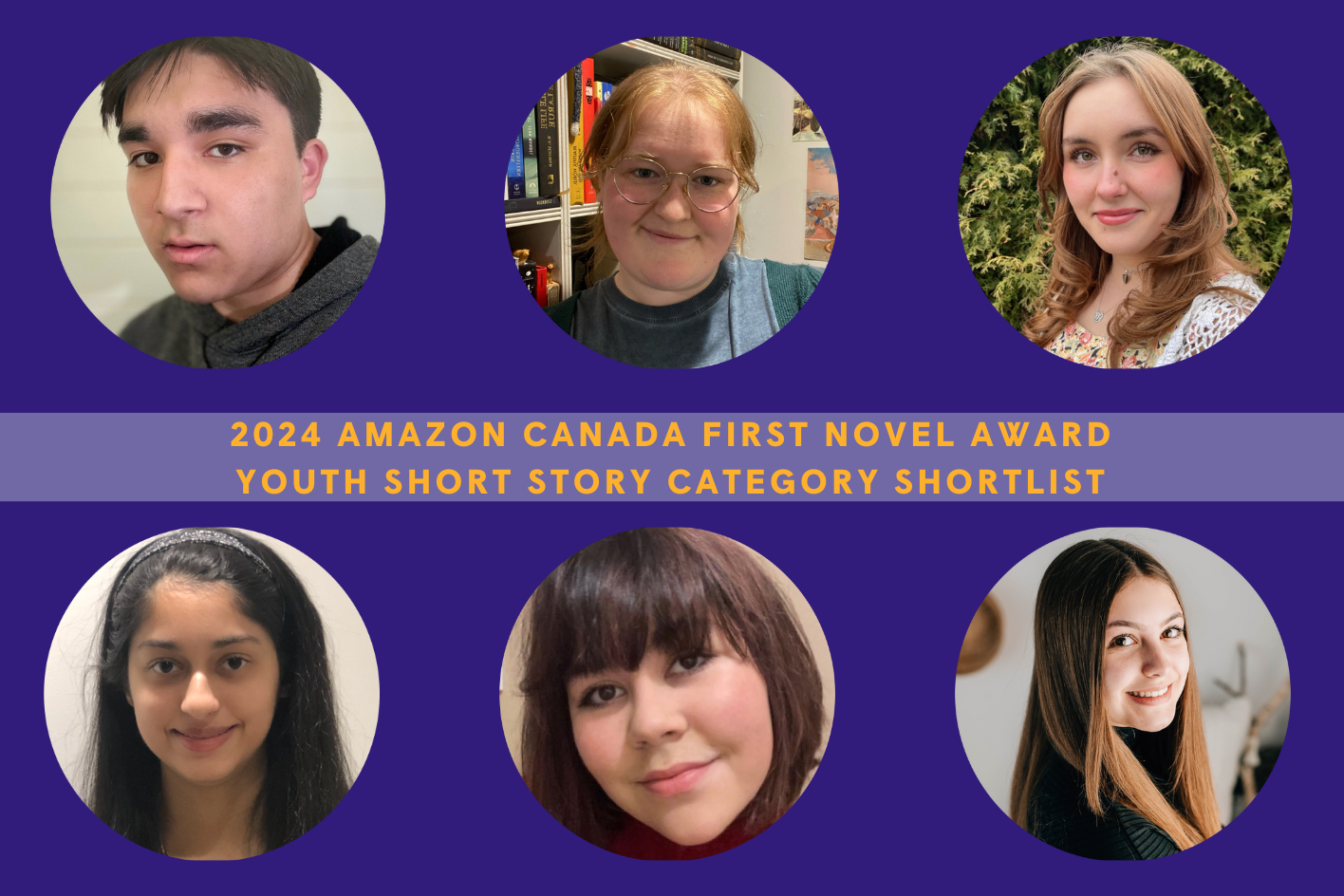
L
Fortunately, these short and longform tales have a higher purpose, offering their creators a chance to reflect on and process their own life experiences through those of their characters and the narratives they weave. Call it literary therapy—or something else—but for this year’s crop of nominees for the Amazon Canada First Novel Award’s Youth Short Story category, they’ve gleaned an awful lot from writing their tiny tomes. Here, they share how the work of short fiction helps them brave reality.

Growing up, I was incredibly shy. It wasn’t the actual act of having a conversation that I was scared of, but the uncertainty of the initial connection. I was terrified of intruding, of saying the wrong thing, of ruining someone’s image of me before it even had a chance to form. All of that is still scary to me, but writing is all about initial connections; those gone right and those gone wrong. Getting to write out the best and worst possible scenarios was a cathartic practice.
Nowadays, with all this practice under my belt, I like to think I’m a lot better at starting conversations and making friends. It’s something I’ve been thinking a lot about as I move away for university this fall. This isn’t a heroic act, but it’s many little braveries stacked on top of each other; enough to exhaust me by the end of the day, just enough to let me feel accomplished anyways.
– Abigail McGhie, “The Creator”

Through writing, I can deal with problems that I don’t feel strong enough to face. I am able to look through the different perspectives of my characters and confront my own emotions. I have struggled with this and have a hard time coping with difficult situations. Being able to take the risk of writing about my feelings builds my courage.
– Payten Josephine Woldanski, “The Voicemails of Marie DuBell”

To me, writing is a way of understanding both myself and the world around me. When I write about things like failure and regret, I can get my thoughts on those topics down on the page. Rather than ignore the difficult parts of life, writing allows me to process them when they do inevitably happen. Losing something close to you or making an irreversible mistake—it’s impossible not to be afraid of these things. But by writing about those experiences, I’m able to welcome that fear and learn how to deal with it. I think that’s the reason I like to write about childhood and across long periods of time, where feelings of loss or regret are bound to root their way into small, precious moments. There’s a deep-seated sadness and strange comfort in knowing that eventually, everything changes.
– Noaah Karim, “Japanese Cheesecake”

Fiction writing allows me to discover how I’m feeling. I can create a character with a similar experience, allowing me to separate myself from my own. Reflection from another’s perspective can be incredibly beneficial; it helps me understand the experience and allows me to be at peace with the memory of it. It shows me that it is okay and that I am more capable than I often feel. It also allows me to put aspects of myself into the character, make them do incredible things, which then makes me feel like I can do great things too. After writing a story about a character who overcomes obstacles, I often feel that I can do the same. Sometimes, this leads me to submit my writing regardless of the possibility of rejection, or attempt something unrelated to writing entirely.
– Khaliya Rajan, “Waves”

Writing gives me the courage to learn more about the world around me. When I write, I am able to change the lens with which I view it, and confront my own experiences from a different perspective. I often take inspiration from my own life, injecting my own personal history and emotions into my writing. I’m able to overcome any fears I have about processing my emotions and can confront my feelings head on. This is a difficult task when attempting it alone, but when accompanied by the guise of fiction, the process feels much easier.
Writing also encourages me to branch out and learn more about myself within a comfortable medium. In general, I think that it takes bravery to communicate human emotions through writing, without the authority to control how people will interpret your feelings. However, I feel that it is an extremely valuable and rewarding process. It helps build courage, compassion, and acceptance.
– Avery Moschee, “Live With It”

Writing fiction allows me to voice things that I’m unable to in my day-to-day life. In reality, I tend to shy away from serious topics; I’m also the type of person to let other people dominate conversations. I’ve learned to get ahead in life by being less assertive. Sometimes people view my energy as an invitation to vent and gossip, which, at times, can be a bonding experience for some teenagers. I can get lost in the stress of all that, but writing fiction helps me get in touch with my own values and remind myself of what is important to me.
– Natalie Webber, “The Very Hungry Caterpillar”







